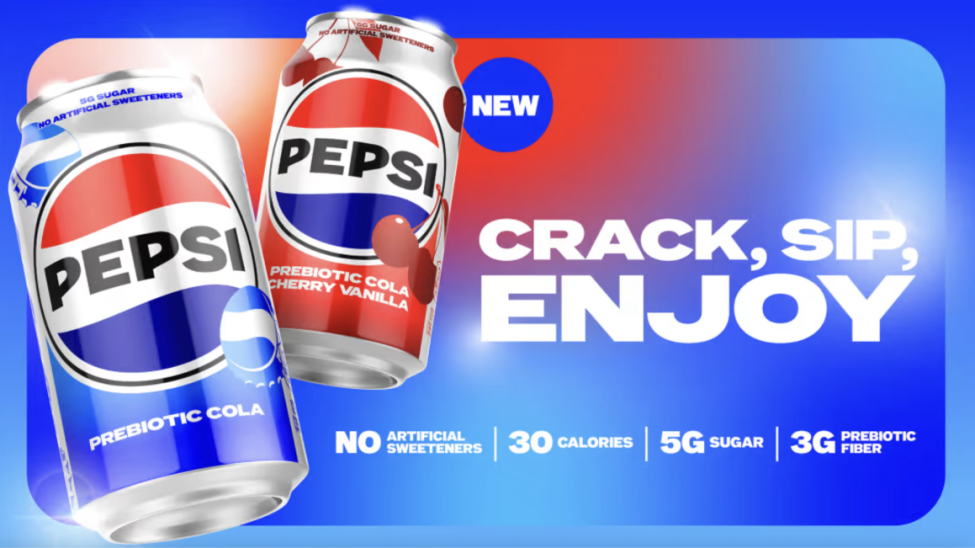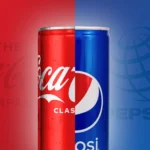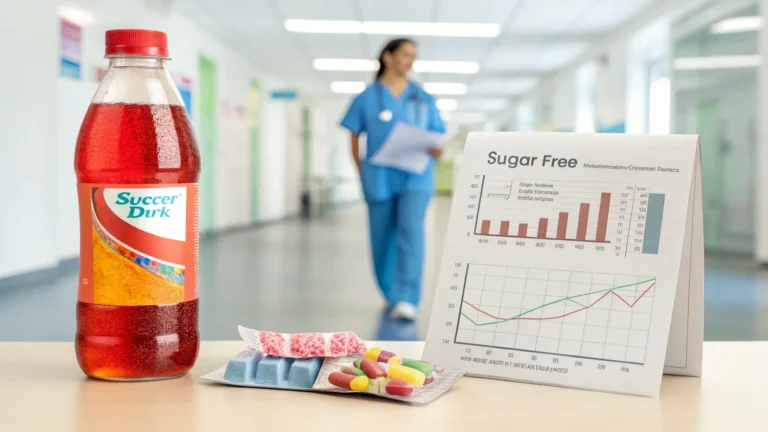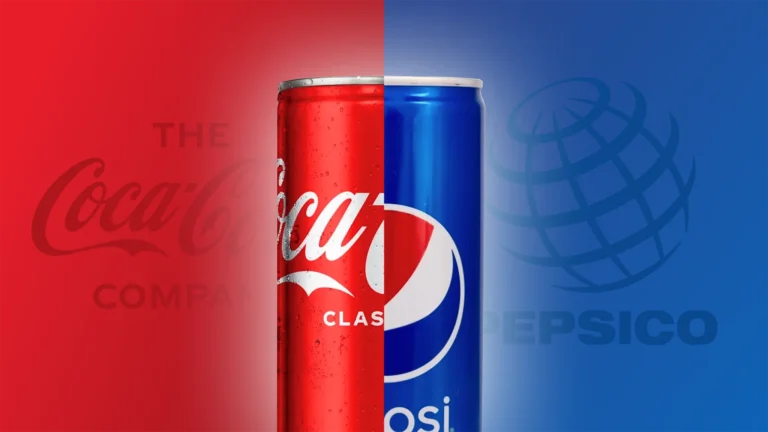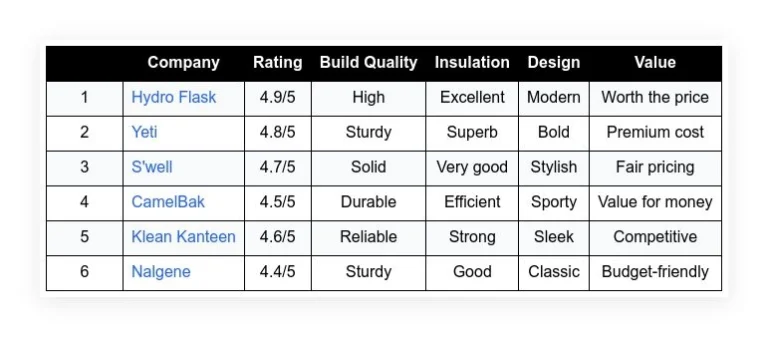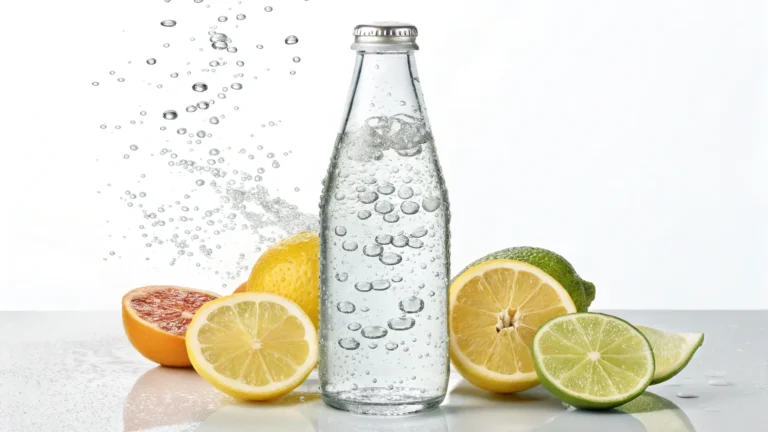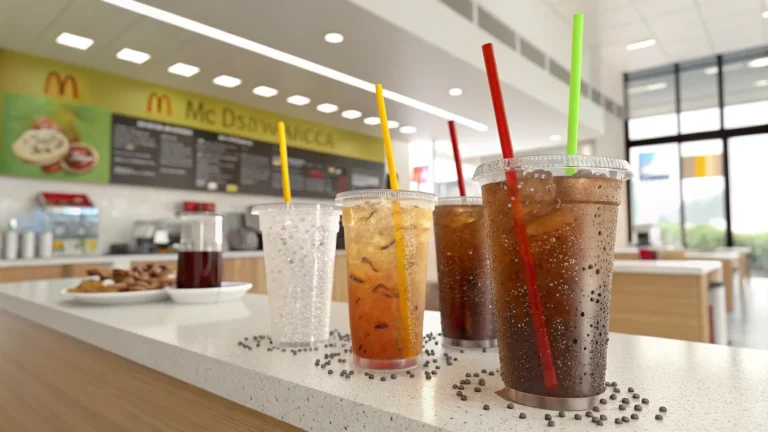PepsiCo has made a notable entry into the healthy beverage space with the launch of its new prebiotic soda. The company announced its Pepsi Prebiotic Cola on July 21, and the drink is set to appear in stores by early 2026. This move comes during a phase when prebiotic sodas are gaining traction among consumers who look for better alternatives to traditional soft drinks. The product aims to blend the familiar taste of cola with a healthful twist meant to support gut wellness.
Product Details and Nutritional Information
The new drink is available in a 12-ounce can in two appealing flavors: Original Cola and Cherry Vanilla. Each can contains five grams of cane sugar, 30 calories, and three grams of prebiotic fiber. This balance of ingredients reflects PepsiCo’s attempt to offer a lower-calorie option that also contributes a small amount of dietary fiber. The information comes from an official PepsiCo news release.
This formulation is designed to attract those who wish to enjoy a soda while taking small steps toward improved gut health. Prebiotic fibers help support the body’s microbiome by providing nourishment to beneficial bacteria. Although experts caution that no single beverage can fully enhance gut health, consumers are encouraged by the idea of combining a familiar drink with potential nutritional benefits.
Market Trends in Prebiotic Beverages
Prebiotic sodas have become a widespread trend in recent years. Since their debut around 2018, drinks that incorporate prebiotic fibers have caught the public’s attention. Brands such as Poppi, Olipop, and Bloom have paved the way with colorful packaging and flavors that differ from standard sodas.
The concept of prebiotics in beverages relies on plant fibers. These fibers help support healthy gut bacteria and contribute to overall digestive health. The Cleveland Clinic explains that prebiotics are food for the microbiome and can play a role in supporting a balanced digestive system when included alongside other healthy habits.
- Flavor Varieties: Pepsi Prebiotic Cola will be launched in Original Cola and Cherry Vanilla.
- Nutritional Content: Each 12-ounce can contains five grams of cane sugar, 30 calories, and three grams of prebiotic fiber.
- Market Entry: The soda is expected to be available online this fall and reach retailers by early 2026.
Industry Competition and Strategic Moves
PepsiCo’s entry into the prebiotic soda market comes at a time when competition in this segment is fierce. Not long ago, PepsiCo acquired the prebiotic brand Poppi for $1.95 billion. This acquisition signals a strong commitment to exploring health-oriented alternatives within the beverage industry. Meanwhile, Coca-Cola recently introduced its Simply Pop line of prebiotic soft drinks, marking a parallel shift among established beverage giants.
These strategic moves indicate that major companies are reassessing their product lines to incorporate functional ingredients without fully stepping away from consumer favorites like cola. The introduction of Pepsi Prebiotic Cola reflects a broader trend where consumers show increased interest in products that offer extra benefits beyond taste. Meanwhile, industry observers note that adding prebiotic fibers is one of several ways companies are attempting to adapt to changing consumer preferences.
Consumer Interest and Nutritional Considerations
Reviews of prebiotic sodas suggest that consumers appreciate the idea of a drink that offers both refreshment and hope for improved well-being. The soft drinks are packaged in bright, colorful cans, which helps them stand out on busy store shelves. Many buyers have been drawn to the promise of a beverage that is positioned as a healthier alternative to conventional sodas. Although dietitians generally agree that these drinks are better than many typical sodas, they emphasize that no single drink can serve as a cure for poor gut health.
This explanation is important for consumers who are new to prebiotic beverages. By including prebiotic fiber, the soda contributes a small portion of the recommended daily dietary fiber intake, which according to the Cleveland Clinic ranges between 25 to 38 grams per day. While a single can does not meet this daily requirement, it does offer a step in the right direction, especially for those who struggle to consume enough fiber from other sources.
Distribution and Availability
PepsiCo has set clear benchmarks for the roll-out of its new product. Pepsi Prebiotic Cola is scheduled for an online release later this fall, with availability in retail outlets coming in early 2026. Consumers can choose between single 12-ounce cans or purchase multi-pack boxes containing eight cans.
Such distribution plans indicate that PepsiCo aims to make the product accessible both through digital channels and traditional retail stores. This dual approach is likely influenced by current consumer habits, which increasingly favor online shopping alongside in-person purchases. By ensuring availability across different sales platforms, PepsiCo hopes to maximize its reach and appeal to a broader audience.
Health and Wellness Messaging
Health and wellness remain significant factors in the marketing of modern beverages. Pepsi Prebiotic Cola joins a growing list of drinks that emphasize benefits for the digestive system. The addition of prebiotic fiber in the drink aligns with concerns over gut health, an area that has received increasing attention in recent years.
Experts in nutrition have weighed in on the subject, noting that while products like Pepsi Prebiotic Cola should not be seen as a miracle solution, they do offer a modest benefit when part of a balanced diet. Dietitians advise that consumers should maintain realistic expectations. A beverage that contributes a small amount of fiber is only one part of a broader strategy to improve overall health.
It is worth noting that the beverage industry has been observing a shift in consumer behavior. More buyers are looking for options that provide small, tangible health benefits. While traditional sodas are often associated with high sugar content and empty calories, prebiotic sodas offer a contrast by incorporating ingredients that could have positive effects when integrated into daily routines.
Industry Response and Future Outlook
The announcement of Pepsi Co.’s new product has triggered interest among consumers and industry analysts alike. Peer companies, which have already introduced their own versions of prebiotic sodas, are expected to continue innovating. This competition is likely to drive further improvements in product offerings, packaging, and distribution methods.
Market analysts see the introduction of prebiotic sodas as part of a broader adjustment in the soft drink industry. With rising consumer awareness about health, companies are being pushed to reconsider both their ingredients and marketing approaches. While traditional formulas remain popular, there is a clear trend towards variations that promise some tangible health benefits.
Experts predict that the competition in this sector will keep growing. Trends now indicate that as consumers become more informed about diet and nutrition, the demand for beverages with added benefits will likely increase. This shift could influence larger segments of the beverage market in the coming years.
Perspectives on Prebiotic Ingredients
The role of prebiotic fibers in supporting digestive health is backed by growing scientific interest. Prebiotics serve as a nutritional component that benefits the body’s natural ecosystem of bacteria. This benefit is a major selling point for new beverages that incorporate such ingredients. The Cleveland Clinic provides guidance on fiber intake and indicates that most prebiotic sodas offer between two to nine grams of fiber per serving.
While the contribution of a single soda is small compared to the daily fiber requirement, it does represent progress toward better eating habits. Consumers trying to improve their diet incrementally may find that substituting a regular soda with a prebiotic option is a positive step. The move by PepsiCo is thus seen as part of a broader trend of minor dietary adjustments that cumulatively benefit overall health.
Consumer Reception and Market Impact
Early responses to the concept of prebiotic sodas have been mixed but largely positive. Fans of the category have praised the idea of a traditional flavor profile combined with a health twist. The bright packaging and contemporary appeal of these beverages also contribute to their marketability. According to market observers, successful adoption depends on consistent taste and the perceived benefits of the added fiber.
Critics point out that while these products offer additional fiber, they are not replacements for a nutritious diet rich in fruits, vegetables, and whole grains. Nonetheless, as part of an overall lifestyle that includes multiple sources of dietary fiber, prebiotic sodas can serve as a small yet noticeable boost. The market impact of such products is expected to grow as more consumers become aware of the benefits of fiber in their diets.
Conclusion and Future Considerations
PepsiCo’s decision to launch Pepsi Prebiotic Cola highlights a progressive step in modifying traditional soft drinks. By blending familiar flavors with prebiotic nutrients, the company is addressing modern consumer interests in both taste and wellness. The product’s availability in popular flavors like Original Cola and Cherry Vanilla provides options that could appeal to a wide range of soda drinkers.
Industry competition remains intense, with major brands like Coca-Cola introducing their own prebiotic lines shortly after. Such rival moves indicate that the soft drink market is evolving to include functional ingredients that offer more than just flavor. While experts show cautious optimism, they also remind consumers of the importance of a balanced diet over reliance on any single product.
As the launch of Pepsi Prebiotic Cola approaches, the beverage market will be watching closely. The evolution of product lines toward healthier alternatives may signal a new chapter for soft drinks. Consumers who prioritize both enjoyment and modest nutritional improvement are likely to find value in these new options. Ultimately, this initiative by PepsiCo may encourage more companies to consider healthful ingredients as they develop new offerings.
Frequently Asked Questions
Q: What makes Pepsi Prebiotic Cola different from regular sodas?
Pepsi Prebiotic Cola offers added prebiotic fiber, which supports the growth of beneficial gut bacteria, whereas regular sodas typically do not include such ingredients.
Q: When and where will the new prebiotic soda be available?
The soda will first be available online this fall and then reach retail stores in early 2026. It comes in 12-ounce cans as well as 8-packs, making it accessible through multiple purchasing options.
Q: Can this beverage improve overall gut health on its own?
While the added prebiotic fiber may contribute to a healthier gut, nutrition experts advise that no single beverage can replace a balanced diet. This drink is best seen as a small supplement to a broader healthy lifestyle.

